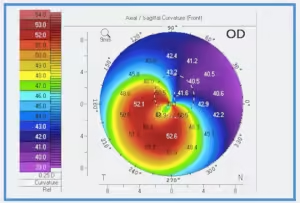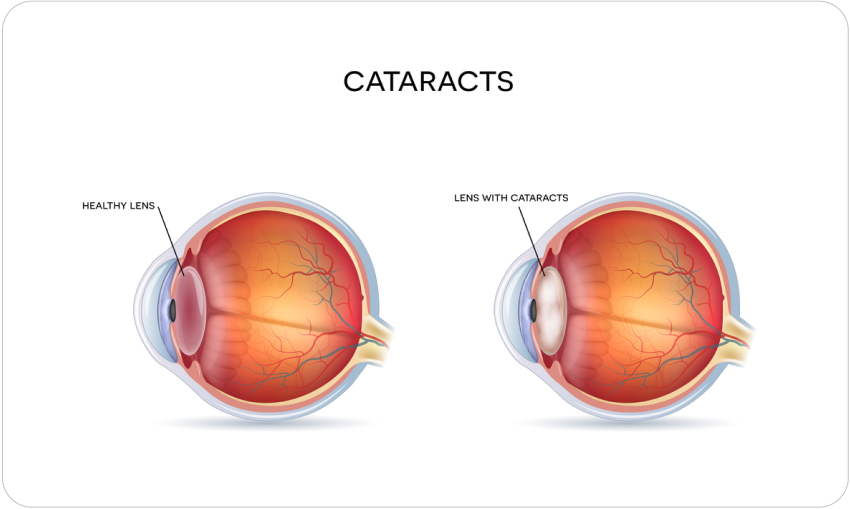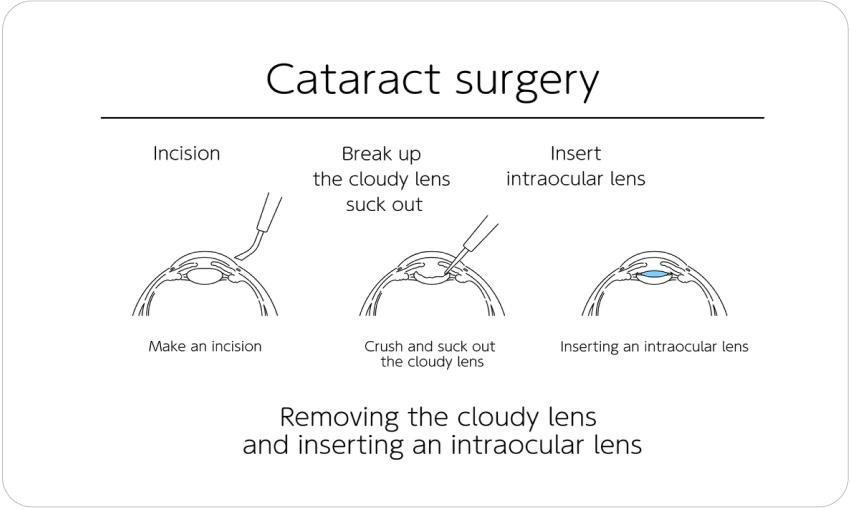

Cataract surgery is a common and highly effective procedure to remove a cloudy lens and replace it with an artificial one, often resulting in significantly improved vision. One question patients often ask cataract surgeons when considering surgery is – can my cataract grow back?
Before delving into whether cataracts can grow back, it is essential to understand what cataracts are and how cataract surgery works.
Inside your eye, you have a natural lens that focuses light onto your retina. A cataract occurs when this lens becomes cloudy and affects the light passing through clearly.

This often results in symptoms such as:
● Blurred or hazy vision
● Increased sensitivity to glare and lights
● Reduced night vision
● Reduced colour and contrast sensitivity
During cataract surgery, the cataract surgeon removes the cloudy natural lens and replaces it with an artificial intraocular lens (IOL). Once the natural lens is removed, it cannot regenerate; therefore, a cataract simply cannot grow back.

Sometimes following cataract surgery, patients can develop a posterior capsular opacification (PCO). This is a common condition that can occur months or even years after cataract surgery is performed. Some people describe this as a ‘secondary cataract’ because it can cause gradual blurry or hazy vision mimicking the symptoms of a cataract. A PCO is not your cataract growing back, it is a clouding of the lens capsule. The capsule is a thin, transparent membrane that covers your natural lens. During cataract surgery, the cataract
surgeon removes the anterior part of the lens capsule and the opaque lens material, and then positions the IOL inside the remaining posterior capsule. Sometimes after cataract surgery, cells can gather on the surface of the posterior capsule causing it to become cloudy. Fortunately, PCO is easily treated with a quick laser procedure called a YAG capsulotomy. During the procedure, the cataract surgeon uses a laser to create a hole in the capsule allowing the light to pass through, whilst the remaining edge of the capsule continues to hold the IOL in place. The procedure is quick, painless, and performed in an Ophthalmologist’s consultation room. Following a YAG laser capsulotomy, most patients experience a rapid improvement in their vision.
While cataract surgery can significantly improve vision, it does not correct for other eye conditions, such as glaucoma and age-related macular degeneration. So, it is possible for your vision to change over time due to the development of different eye conditions. It is vital to maintain regular eye examinations with an eye care professional, to monitor your eye health.
Cataract surgery is a highly effective and permanent solution for treating cataracts. It is a safe and reliable way to restore vision and improve your quality of life. If you are considering cataract surgery, book an appointment with your Ophthalmologist to discuss any questions you may have.
Copyright © 2023 Nexus Eye Care | Trans4m Business Consulting – Website Design & SEO | Privacy Policy | ^